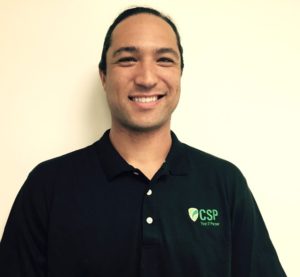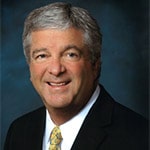Existing CSP Client: (919) 424-2060
SALES: (919) 420-3231

Nestled in the heart of downtown Raleigh, the City of Raleigh Museum stands as a testament to the vibrant history and culture of North Carolina’s capital city. Located in the historic Briggs Hardware Building at 220 Fayetteville Street, the museum offers visitors an engaging look at the people, events, and historical milestones that have shaped Raleigh over the centuries. Since its opening in 1993, the museum has become a vital cultural hub, offering a range of exhibits that bring the city’s past to life.
The museum’s location in the Briggs Hardware Building, built in 1874, is a fitting backdrop for exploring Raleigh’s rich history. The building itself holds historical significance and provides a space that seamlessly combines Raleigh’s architectural past with the museum’s modern exhibitions. This blend of old and new enhances the visitor experience, offering a deeper understanding of the city’s evolution.
The City of Raleigh Museum’s permanent exhibit, “Hello! We Are Raleigh”, serves as an introduction to the city’s history, taking visitors on a journey from Raleigh’s early beginnings to its present-day status as a thriving urban center. Through a collection of photographs, artifacts, and stories, the exhibit traces the city’s growth, highlighting key moments in its development and the people who shaped it.
One of the most intriguing aspects of the museum is its focus on Raleigh’s founding in 1792. The city was specifically chosen to be the capital of North Carolina because of its central location, making it easily accessible to residents from all regions of the state. The exhibit emphasizes Raleigh’s origins as a planned city, designed to serve as the heart of North Carolina’s political and economic life.
The museum also delves into the impact of Raleigh’s role in the Civil War, showcasing how the city and its residents were affected by the conflict. Visitors can learn about Raleigh’s status as a Confederate capital and explore the lasting effects the war had on the city’s social, cultural, and economic landscape. The museum captures the significance of Raleigh’s post-war reconstruction, as well as its role in the Jim Crow South and the city’s eventual journey toward civil rights and social justice.
As Raleigh expanded, so did its economic and cultural influence. The museum’s exhibits chart the growth of industry, commerce, and transportation, exploring the rise of railroads, manufacturing, and the tobacco industry that helped define the region’s economic landscape. These developments transformed Raleigh from a small town into the bustling city it is today.
The museum provides insight into the city’s architectural growth, from its early homes and public buildings to the modern structures that now define the skyline. Visitors can learn about the influence of notable architects and city planners who helped shape Raleigh’s aesthetic, including the development of its downtown district, government buildings, and public parks.
Raleigh’s importance as the state capital is evident in the museum’s exhibit on the development of local government. Raleigh’s role as a seat of government for North Carolina has always been a defining feature of the city’s identity. The museum highlights the development of local political institutions, the role of the state legislature, and the city’s position as a political hub for the state’s residents.
The Briggs Hardware Building, where the museum is located, is a key part of Raleigh’s commercial history. Originally constructed in 1874, it served as the home of Briggs Hardware, one of the city’s most important suppliers of building materials, tools, and hardware during the late 19th century. The building is a great example of Victorian commercial architecture, featuring a distinctive tin ceiling, exposed brick walls, and large windows that reflect the industrial boom Raleigh experienced at the time.
The building’s transformation from a hardware store to a museum is a symbolic representation of Raleigh’s evolution. As Raleigh shifted from an industrial economy to one centered on technology, education, and government, the building was repurposed to serve as a cultural space that reflects the city’s past while also embracing its future. The City of Raleigh Museum preserves the historical integrity of the structure while offering modern exhibitions that engage visitors with the city’s rich history.
One of the museum’s most significant exhibits is “The People’s Politics”, which explores Raleigh’s long history of local government. This exhibit delves into the city’s political evolution, tracing the development of its governmental structure and highlighting key figures and events that shaped Raleigh’s political landscape.
Visitors can explore the history of Raleigh’s mayors, from the city’s first mayor in 1795 to the present day. The exhibit focuses on the role of city leadership in navigating Raleigh’s growth, particularly during times of economic change, civil unrest, and political shifts. This is complemented by a discussion of how citizen involvement has shaped the city’s political institutions, with an emphasis on local elections, activism, and the development of political movements in Raleigh.
The museum also highlights the history of Raleigh’s political parties, the role of women in local politics, and the evolving nature of voting rights in the city. The exhibit offers a comprehensive look at how Raleigh’s government has evolved to meet the needs of its diverse and growing population.
In addition to its historical exhibits, the City of Raleigh Museum celebrates the cultural heritage of the city. The museum highlights Raleigh’s development as a cultural center, showcasing its contributions to arts, education, and music. Exhibits on local artists, musicians, and cultural figures provide a deeper understanding of how Raleigh has contributed to the cultural fabric of North Carolina.
Raleigh has long been a center for the arts, from the founding of the North Carolina Museum of Art to the growth of local theater and music scenes. The museum’s exhibits explore the city’s role in nurturing local talent and providing spaces for artistic expression. This includes the influence of music venues like the Lincoln Theater, which has hosted some of the state’s most influential jazz, blues, and gospel artists.
The City of Raleigh Museum is also a hub for community engagement. In addition to its exhibits, the museum offers educational programs that foster a greater appreciation for Raleigh’s history. Through activities like guided tours, workshops, and lectures, the museum encourages visitors to learn more about Raleigh’s past and its ongoing transformation.
The museum is also a gathering space for community events. It hosts public talks, family events, and cultural celebrations that engage residents and visitors alike. Whether through a discussion on Raleigh’s architectural legacy or a family-friendly history event, the museum plays a vital role in connecting the community with the city’s cultural heritage.
The City of Raleigh Museum is a must-visit destination for anyone interested in learning more about the city’s history, its role as the state capital, and its cultural evolution. Through its comprehensive exhibits, engaging educational programs, and commitment to preserving Raleigh’s past, the museum offers a dynamic and enriching experience for all ages. Whether you are a longtime resident or a first-time visitor, the City of Raleigh Museum provides valuable insights into the people, places, and events that have shaped this vibrant and growing city. With its focus on community engagement, political history, and cultural heritage, the museum is a vital resource for understanding the essence of Raleigh and its ongoing story.
Explore our IT Services Provider offerings
Driving Directions to CSP Inc. | Managed IT Services and IT Support Company in Raleigh From This POI
Driving Directions To The Next POI

Always at your service to provide the highest level of quality support to our customers.

Anthony Firth Client Engineer

“I’m passionate about building and fostering relationships, and finding solutions for success.”

Michael Koenig Client Account Manager

“I help clients stabilize and grow their IT infrastructure so they can focus on growing their core business.”

Josh Wilshire Systems Engineer Team Lead

“I strive to provide the highest level of quality service to our customers.”

Tommy Williams Sr. Hardware Engineer

“I’m driven by the steadfast belief that technology must serve as a business enabler. This mantra has driven 21
Years of successful partnerships.”

Stephen Riddick VP Sales & Marketing

“CSP doesn’t succeed unless your company succeeds.”

Stephen Allen Inventory Manager

“Through my intuition and genuine concern to help others I have built long-lasting relationships with our customers, co-workers and business partners.”

Scott Forbes VP Support Services

“Every day, I work with clients to help plan the future of their businesses.”

Michael Bowman vCIO

“Your IT problems become our IT solutions.”

Mark McLemore Project Engineer

“Managing internal and external operations to ensure that CSP provides quality and reliable customer service .”

Margie Figueroa Business Manager

“Providing quality internal and externals financial support to our customers and accounting support to CSP.”

Katie Steiglitz Accounting Administrator

“Some call me the CEO. I call myself the Cheerleader for an awesome team!”

William B. Riddick Founder & CEO

“CSP is here to assist you with your IT needs.”

Beth Wylie Inside Sales Manager




On What Questions You Need To Ask Before Signing Any Agreement.
"*" indicates required fields

Raleigh IT Support Company and IT Services Provider | CSP Inc.
1310 Nowell Rd,
Raleigh, NC 27607
Existing CSP Client: (919) 424-2060
SALES: (919) 420-3231
Receive email updates and informative marketing materials by subscribing to our newsletter.
"*" indicates required fields